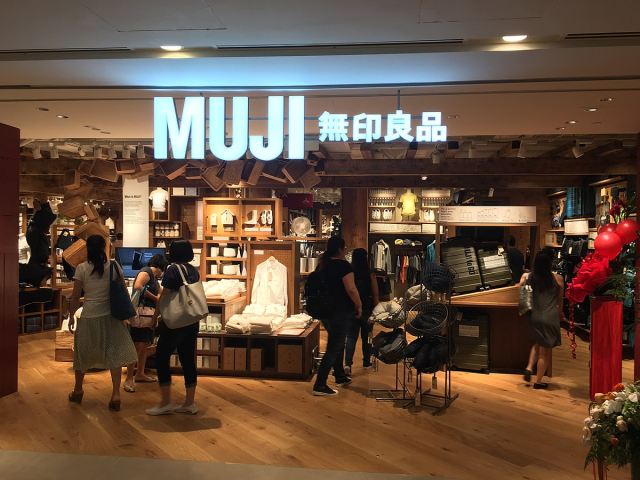
Police say fraudster virtually visited Muji branches on three continents without ever leaving his Hokkaido home.
Some people believe that criminals can’t help but return to the scene of their crimes, and you could argue that’s what Daigo Sugano did. However, much like with his first arrest, police are saying the 29-year-old resident of Ishikari in Hokkaido Prefecture managed to pull off a multi-city caper without leaving the town he lives in.
Many retailers in Japan have loyalty programs that reward not only paying customers, but also anyone who visits their store for browsing. Granted, the non-paying visitor rewards are a pittance, at most a few yen of store credit when you check in through the store’s app or kiosk, but still, that’s a few yen’s worth of pure profit. In the case of interior and lifestyle brand Mujirushi (also known as Muji), each visit gets you one point, equivalent to one yen (roughly one U.S. cent) of credit.
According to the police, between April 12 and May 30 Sugano managed to accrue 5.62 million yen (US$49,735) worth of Mujirushi points, which would correspond to an identical 5.62 million visits in about six weeks’ time. While some might argue that’s not mathematically impossible for an insanely determined person, investigators say Sugano racked up all those points by pretending to visit 909 Mujirushi branches across Japan, North America, and Europe, utilizing 300 false Mujirushi app accounts and an array of 45 computers in his Hokkaido home to manipulate GPS data.
▼ Used properly, the Muji Passport app can get you free curry. Used improperly, it can get you jail time.
And so for the second time this month, Sugano has been arrested for computer fraud, since he’s the same guy who also pretended to make 2.7 million visits to Aeon shopping centers. Once again, it was officers from Japan’s southwestern island of Kyushu, on the opposite side of the country from Hokkaido, once again doing the honors, presumably since some of the defrauded Mujirushi branches were located within their jurisdiction.
The police say that almost none of the credit Sugano acquired remains in his accounts, and are investigating how/where it was used. Considering that Sugano has no official employment but still managed to amass 45 computers in his home, there’s a distinct possibility that he was reselling the credit to third parties, or maybe he just really, really wanted some Mujirushi bean bag chairs, towels, and matcha chocolate-covered strawberries.
But remember, kids, in the end crime doesn’t pay. The only way to achieve socially responsible, long-lasting financial security is through hard work and careful saving…or just buying a whole bunch of lottery tickets.
Source: Mainichi Shimbun via Hachima Kiko, Mujirushi
Top image: Wikipedia/Banej
Insert image: Mujirushi
Follow Casey on Twitter, where he’s wondering where he put his Mujirushi background music CDs.


 Hokkaido man arrested for pretending to visit Aeon shopping centers 2.7 million times
Hokkaido man arrested for pretending to visit Aeon shopping centers 2.7 million times Mujirushi’s Japanese micro-houses are finally on sale to the general public!
Mujirushi’s Japanese micro-houses are finally on sale to the general public! Japanese interior brand Muji opening its first hotel ever in the heart of Tokyo
Japanese interior brand Muji opening its first hotel ever in the heart of Tokyo Japanese brand Muji’s new soy meat can be stored at room temperature, needs no hydration
Japanese brand Muji’s new soy meat can be stored at room temperature, needs no hydration The world’s biggest Muji store opened in Hiroshima, and we went to check it out!
The world’s biggest Muji store opened in Hiroshima, and we went to check it out! McDonald’s new Happy Meals offer up cute and practical Sanrio lifestyle goods
McDonald’s new Happy Meals offer up cute and practical Sanrio lifestyle goods All-you-can-drink Starbucks and amazing views part of Tokyo’s new 170 meter-high sky lounge
All-you-can-drink Starbucks and amazing views part of Tokyo’s new 170 meter-high sky lounge Studio Ghibli glasses cases let anime characters keep an eye on your spectacles
Studio Ghibli glasses cases let anime characters keep an eye on your spectacles Super Nintendo World expansion gets delayed for several months at Universal Studios Japan
Super Nintendo World expansion gets delayed for several months at Universal Studios Japan Starbucks reopens at Shibuya Scramble Crossing with new look and design concept
Starbucks reopens at Shibuya Scramble Crossing with new look and design concept Kyoto’s 100 Demons yokai monster parade returns!
Kyoto’s 100 Demons yokai monster parade returns! Hello Kitty/Yu-Gi-Oh crossover Happy Meal toys appear, but far, far away from Japan
Hello Kitty/Yu-Gi-Oh crossover Happy Meal toys appear, but far, far away from Japan A visit to the best UFO catcher arcade in the universe!
A visit to the best UFO catcher arcade in the universe! More foreign tourists than ever before in history visited Japan last month
More foreign tourists than ever before in history visited Japan last month Hey, Japanese taxi driver! Take us to your favorite restaurant in Tsuruga City!
Hey, Japanese taxi driver! Take us to your favorite restaurant in Tsuruga City! Disney princesses get official manga makeovers for Manga Princess Cafe opening in Tokyo
Disney princesses get official manga makeovers for Manga Princess Cafe opening in Tokyo Beautiful new Final Fantasy T-shirt collection on the way from Uniqlo【Photos】
Beautiful new Final Fantasy T-shirt collection on the way from Uniqlo【Photos】 Is the new Shinkansen Train Desk ticket worth it?
Is the new Shinkansen Train Desk ticket worth it? Foreign English teachers in Japan pick their favorite Japanese-language phrases【Survey】
Foreign English teachers in Japan pick their favorite Japanese-language phrases【Survey】 Japanese convenience store packs a whole bento into an onigiri rice ball
Japanese convenience store packs a whole bento into an onigiri rice ball We try out “Chan Ramen”, an underground type of ramen popular in the ramen community
We try out “Chan Ramen”, an underground type of ramen popular in the ramen community Studio Ghibli releases Kiki’s Delivery Service chocolate cake pouches in Japan
Studio Ghibli releases Kiki’s Delivery Service chocolate cake pouches in Japan Japan’s bone-breaking and record-breaking roller coaster is permanently shutting down
Japan’s bone-breaking and record-breaking roller coaster is permanently shutting down New definition of “Japanese whiskey” goes into effect to prevent fakes from fooling overseas buyers
New definition of “Japanese whiskey” goes into effect to prevent fakes from fooling overseas buyers Our Japanese reporter visits Costco in the U.S., finds super American and very Japanese things
Our Japanese reporter visits Costco in the U.S., finds super American and very Japanese things Studio Ghibli unveils Mother’s Day gift set that captures the love in My Neighbour Totoro
Studio Ghibli unveils Mother’s Day gift set that captures the love in My Neighbour Totoro Foreign passenger shoves conductor on one of the last full runs for Japan’s Thunderbird train
Foreign passenger shoves conductor on one of the last full runs for Japan’s Thunderbird train Domino’s Japan now sells…pizza ears?
Domino’s Japan now sells…pizza ears? New Japanese KitKat flavour stars Sanrio characters, including Hello Kitty
New Japanese KitKat flavour stars Sanrio characters, including Hello Kitty Kyoto creates new for-tourist buses to address overtourism with higher prices, faster rides
Kyoto creates new for-tourist buses to address overtourism with higher prices, faster rides Sales of Japan’s most convenient train ticket/shopping payment cards suspended indefinitely
Sales of Japan’s most convenient train ticket/shopping payment cards suspended indefinitely Sold-out Studio Ghibli desktop humidifiers are back so Totoro can help you through the dry season
Sold-out Studio Ghibli desktop humidifiers are back so Totoro can help you through the dry season Japanese government to make first change to romanization spelling rules since the 1950s
Japanese government to make first change to romanization spelling rules since the 1950s Ghibli founders Toshio Suzuki and Hayao Miyazaki contribute to Japanese whisky Totoro label design
Ghibli founders Toshio Suzuki and Hayao Miyazaki contribute to Japanese whisky Totoro label design Doraemon found buried at sea as scene from 1993 anime becomes real life【Photos】
Doraemon found buried at sea as scene from 1993 anime becomes real life【Photos】 Tokyo’s most famous Starbucks is closed
Tokyo’s most famous Starbucks is closed One Piece characters’ nationalities revealed, but fans have mixed opinions
One Piece characters’ nationalities revealed, but fans have mixed opinions We asked a Uniqlo employee what four things we should buy and their suggestions didn’t disappoint
We asked a Uniqlo employee what four things we should buy and their suggestions didn’t disappoint Princesses, fruits, and blacksmiths: Study reveals the 30 most unusual family names in Japan
Princesses, fruits, and blacksmiths: Study reveals the 30 most unusual family names in Japan Muji flagship store in Tokyo’s Ginza reopens after renovation and puts the focus on food【Photos】
Muji flagship store in Tokyo’s Ginza reopens after renovation and puts the focus on food【Photos】 Anybody want to live rent-free in a house in a Japanese beach town for two years?
Anybody want to live rent-free in a house in a Japanese beach town for two years? Tokyo’s Muji Hotel now taking reservations, ready to provide lifestyle-brand comfort to travelers
Tokyo’s Muji Hotel now taking reservations, ready to provide lifestyle-brand comfort to travelers Mouth-watering green tea-covered strawberries about to go on sale at Japan’s Mujirushi Ryohin
Mouth-watering green tea-covered strawberries about to go on sale at Japan’s Mujirushi Ryohin Is Muji’s most expensive instant curry worth its price?【Taste test】
Is Muji’s most expensive instant curry worth its price?【Taste test】 Get ready to take a seat on Muji’s new lightweight and easily portable Sofa Made from Air
Get ready to take a seat on Muji’s new lightweight and easily portable Sofa Made from Air Make your mark: Personalize gift bags, notebooks and more with free Muji stamp station
Make your mark: Personalize gift bags, notebooks and more with free Muji stamp station New Shampoo Bar shop in Tokyo promises you a nap, or your money back!
New Shampoo Bar shop in Tokyo promises you a nap, or your money back! Amazingly organized Sailor Moon treasure drawer is inspiration to anime fans and neat freaks【Vid】
Amazingly organized Sailor Moon treasure drawer is inspiration to anime fans and neat freaks【Vid】 Five things you should eat at Muji Japan, according to staff who work there
Five things you should eat at Muji Japan, according to staff who work there Muji is selling sake, and it’ll make drinkers feel good in more ways than one
Muji is selling sake, and it’ll make drinkers feel good in more ways than one 【2016 Lucky Bag Roundup】The contents of Muji’s menswear lucky bag could make any man hip
【2016 Lucky Bag Roundup】The contents of Muji’s menswear lucky bag could make any man hip Internet reacts with confusion to Muji’s new fill-it-up-yourself water bottle product
Internet reacts with confusion to Muji’s new fill-it-up-yourself water bottle product Man arrested for scamming millions of yen with complaints of “soggy bread”
Man arrested for scamming millions of yen with complaints of “soggy bread” This delicious naan-focaccia combination is the one thing we want for dessert right now【SoraKitchen】
This delicious naan-focaccia combination is the one thing we want for dessert right now【SoraKitchen】 Japanese university students reveal the part-time jobs they’d most like to have
Japanese university students reveal the part-time jobs they’d most like to have
Leave a Reply